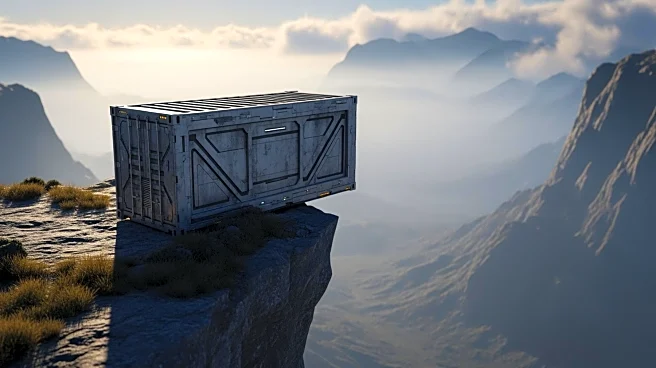What's Happening?
A family is facing a dilemma regarding the ashes of a brother who died of Covid four years ago. The ashes were given to the letter writer by the brother's wife's sibling, as the wife was too distraught
to handle them. The ashes have been kept on a porch bookshelf since then. With one of the brother's children having completed college and the other nearing high school graduation, the family is considering whether to discuss the future of the ashes with them. The letter writer expresses discomfort with keeping the ashes indefinitely and seeks advice on how to approach the topic with the brother's family.
Why It's Important?
This situation highlights the emotional complexities and family dynamics involved in handling the remains of a loved one. It underscores the challenges of navigating grief and the responsibilities that come with being the custodian of a family member's ashes. The decision on what to do with the ashes can impact family relationships and the grieving process. It also raises questions about cultural and personal preferences in memorializing loved ones. The family's experience reflects broader societal issues related to death, mourning, and the importance of communication in resolving sensitive matters.
What's Next?
The letter writer is advised to initiate a conversation with the brother's wife and children, suggesting that the ashes be returned to their branch of the family. This approach aims to address the issue directly and relieve the writer of the responsibility. The family may need to consider the emotional readiness of the brother's children to take on this task and explore options for a final resting place that honors the brother's memory. The decision could involve discussions about scattering the ashes or finding a suitable location for them, taking into account any legal or cultural considerations.
Beyond the Headlines
The situation reflects the broader cultural and ethical considerations surrounding the handling of human remains. It highlights the importance of respecting the wishes of the deceased and their family while navigating the complexities of grief. The family's experience may prompt discussions about the role of tradition and personal choice in memorializing loved ones. It also raises awareness about the need for clear communication and planning in end-of-life matters to prevent misunderstandings and ensure that the deceased's wishes are honored.











